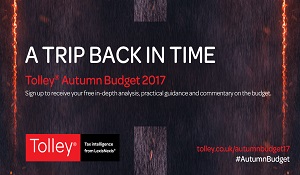March 13th, 2018
The Chancellor, Philip Hammond, delivered his first Spring Statement on 13 March 2018. This news item outlines the tax announcements which accompanied his speech. Documents relating to the Spring Statement are available on the GOV.UK website.
As was widely expected, the Chancellor made no announcements regarding immediate, or imminent, changes to the tax system. However, Mr Hammond made reference to a number of consultations and position papers which the Government has published today.
Direct taxes
Allowing entrepreneurs’ relief on gains made before dilution
As announced at the Autumn Budget 2017, the Government has now issued a consultation aimed at addressing the issue where taxpayers may lose entitlement to entrepreneurs’ relief due to the dilution of their shareholding. This issue was highlighted recently in the McQuillan case.
Consultation: Entrepreneurs’ Relief on gains made before dilution; McQuillan and another v HMRC [2017] UKUT 344 (TCC)
The consultation requests views on allowing shareholders to elect to crystallise gains when their shareholding is diluted. This would mean that shareholders could elect to be treated as disposing and immediately reacquiring their shares at market value.
Consultation: Entrepreneurs’ Relief on gains made before dilution, paras 3.4–3.8
In addition to this election, the Government is considering allowing gains under this new election to be deferred. This would prevent a ‘dry’ tax charge arising where the taxpayer has not realised any funds with which to pay tax.
Consultation: Entrepreneurs’ Relief on gains made before dilution, paras 3.9–3.14
The consultation raises questions regarding a number of aspects of this proposal, including tracking deferred gains, determining the time of dilution and preventing abuse of the new rules.
Consultation: Entrepreneurs’ Relief on gains made before dilution, Chapter 4
The Government states that it will introduce legislation in Finance Bill 2019 which will apply to fundraising events taking place on or after 6 April 2019. Where a shareholder faces losing entrepreneurs’ relief due to a dilution of shareholding, they may wish to consider whether it is possible to delay raising funds until this time.
Taxation of self-funded work-related training
The Government has issued a consultation on how the tax system can be used to help incentivise training that is funded by employees themselves, as opposed to their employer, and the self-employed.
Consultation: Taxation of self-funded work-related training
Currently, where an employer provides work-related training, the cost is an allowable deduction for tax purposes and there is no benefit in kind on the employee. However, where an employee incurs the cost themselves, there is no tax relief unless the training can be shown to be incurred wholly, exclusively and necessarily for the purpose of their employment, such as in the Banerjee case.
HMRC v Banerjee [2010] EWCA Civ 843
Self-employed individuals must show that training is incurred wholly and exclusively for the purposes of the trade, but also that it is not capital in nature. This usually means that training that develops new skills is not an allowable deduction, whereas training that maintains existing skills is an allowable deduction.
The Government is seeking views on the design of an extension to the existing reliefs for training, whether for upskilling in an existing role or retraining for a new career. It is also asking whether there are any issues with the existing rules and administration that need to be resolved.
Enterprise investment scheme knowledge-intensive fund
As part of its response to the patient capital review that took place in 2017, the Government has launched a consultation to better understand the capital gap faced by knowledge-intensive companies and to seek views on how to close this gap. This follows on from the changes to the EIS and VCT rules for investment in knowledge-intensive companies announced in Autumn Budget 2017, which are to be legislated in Finance Bill 2018 (expected to receive Royal Assent later this week), see the Autumn Budget 2017 ― owner-managed businesses overview news item.
Consultation: Financing growth in innovative firms, para 1.5
The Government wishes to explore whether to build a new knowledge-intensive fund structure within the EIS rules (ie an EIS fund that invests primarily in knowledge-intensive companies). Possible tax incentives to encourage individuals to make long-term investments into such funds are:
- EIS fund dividends paid to the investor could be tax-free after a fixed holding period, which could be five or seven years (ie dividends received in the early years of the investment would be taxable)
- a percentage of the individual’s gain arising on another asset could be exempted from capital gains tax if he were to make an investment in an EIS knowledge-intensive fund. The proposal is that the percentage of the gain exempted would be lower than the current 50% of the gain that is exempted under the SEIS rules
- extended carry-back of income tax relief and the capital gains tax exemption on investment (ie further back than the current EIS rules)
- the income tax relief and capital gains tax exemption could be given when the individual invests in the EIS knowledge-intensive fund, rather than when the fund itself invests in the target company or when the fund is closed to new investment (as is the case with current EIS funds)
Consultation: Financing growth in innovative firms, Chapter 3
Should the outcome of this consultation require changes to the EIS rules prior to the UK leaving the European Union (as is likely), state aid approval will be required.
Consultation: Financing growth in innovative firms, para 1.9
The rates of income tax relief currently available under the EIS, SEIS and VCT schemes are not within the remit of the consultation.
Consultation: Financing growth in innovative firms, para 1.8
Corporate tax and the digital economy
The Government has issued an update to its original position paper published at the Autumn Budget 2017. This follows the review of feedback submitted by interested stakeholders, setting out in more detail how it believes the challenges posed by the digital economy can be resolved.
Position paper: Corporate tax and the digital economy
It should be noted that the paper does not set out the Government’s final stance on these matters and the proposals will need to be refined on an ongoing basis in order to meet the policy objectives. It is hoped that the position paper will help to inform the work being carried out by the OECD and the G20 in finding a multilateral solution to the problems identified.
Further business engagement and written feedback is welcomed by the Government whilst these policies continue to be developed.
For more details see the Corporate tax and the digital economy ― Spring Statement 2018 update news item.
Tax administration
Extension of security deposit legislation
The Government has issued a consultation on how to extend the scope of existing security deposit schemes to include corporation tax and construction industry scheme (CIS) deductions. It intends to introduce legislation in Finance Bill 2019 that will target defaulters that pose a serious risk to revenue.
Consultation: Extension of security deposit legislation
HMRC has found that the existing use of security deposits in respect of VAT, PAYE and NICs, landfill tax, aggregates levy, climate change levy, insurance premium tax and certain gambling duties has proved effective in tackling non-compliant businesses and cases of phoenixism. As with this existing use, the use for corporation tax and CIS purposes will be limited to high risk businesses that fail to comply with their tax obligations.
The consultation is seeking views on the form and calculation of securities, the scope and suitability of the provisions, and what offences might be appropriate to legislate. The Government intends to include these measures in Finance Bill 2019 in order to come into effect from April 2019.
The role of online platforms in ensuring tax compliance by their users
The Government has issued a call for evidence to help it determine what measures it can take in ensuring that users of online platforms and marketplaces meet their tax obligations.
Call for evidence: Online platforms’ role in ensuring tax compliance by their users
Whilst many users of online platforms may not have tax liabilities due to, for example, the trading and property allowances, the Government wants to ensure taxpayers understand the tax obligations that may arise. The call for evidence is trying to determine the existing behaviours of such individuals and the platforms themselves, what tax obligations and opportunities for abuse exist, and how these issues have been addressed in other countries.
Cash and digital payments in the new economy
HM Treasury has issued a call for evidence on cash and digital payments. In part, this call seeks views on how the use of cash may increase tax evasion and money laundering.
Call for evidence: Cash and digital payments in the new economy
Indirect taxes
VAT registration threshold
The Government has concerns that the current VAT registration threshold may be dis-incentivising small businesses from growing their business to its full potential. As a result, a call for evidence has been published in order to explore the effect of the current VAT registration threshold on small business. Once the consultation has concluded the Government will consider different policy options and ask whether those options could better incentivise growth.
Call for evidence: VAT registration threshold
According to previous commitments from the Government, any change in the VAT threshold will not take effect until April 2020. However, with digital record keeping and electronic filing for VAT coming in from April 2019, any reduction in the VAT threshold will increase the numbers of businesses falling into the making tax digital (MTD) regime.
VAT, air passenger duty and tourism in Northern Ireland
The Government announced that it would like to support the economy in Northern Ireland and to build on the already growing tourist industry there.
However, concerns have been raised regarding the impact of VAT and air passenger duty (APD) on tourism in the UK and in particular Northern Ireland. The Government is aware that views on the potential costs and benefits are divided so it has announced a call for evidence to seek opinions on the significance of any impacts that VAT and / or APD have on tourism and to obtain any information that helps to show how VAT and / or APD might be used to support the growth of tourism in Northern Ireland.
Call for evidence: VAT, Air Passenger Duty and tourism in Northern Ireland
Tax treatment of heated tobacco products
The Government has published a summary of the responses that it has received to the consultation document. The intention is to create a new excise category for heated tobacco products.
Summary of responses: Tax treatment of heated tobacco products
Alternative method of VAT collection ― split payment
The Government has published a consultation document that seeks views on potential options for a split payment mechanism, whilst also assessing the overall viability of split payment. This is as a result of the feedback received in respect of its call for evidence and continued engagement with interested stakeholders.
Consultation: Alternative method of VAT collection ― split payment
Tackling the plastic problem
The Government has issued a call for evidence that explores how changes to the tax system may be used to reduce the amount of single-use plastics. The Chancellor is seeking to adopt measures which will create a behavioural shift and reduce waste by deterring unnecessary production, increasing reuse and improving recycling.
Call for evidence: Tackling the plastic problem
The call for evidence considers the entire supply chain, from production to disposal, and asks how the tax system can play a role in delivering better environmental outcomes.
You may also be interested in
Request a FREE 1 week trial
Please note that all fields marked with a * must be filled in



